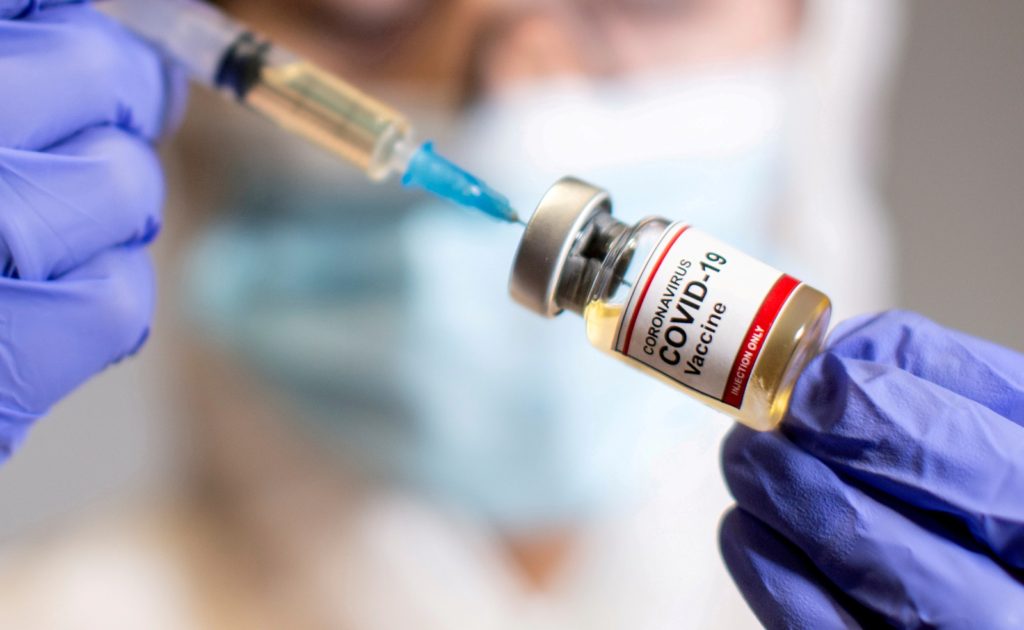United States COVID-19 Vaccine Update

Image courtesy of Voice of America
By Noelia Veras
Typically, vaccines require years of prior research and testing to be approved by the Food and Drug Administration. However, in 2020, the global need for a COVID-19 vaccine surged, inciting scientists to engage in a race to find the vaccine.
Currently, there are three authorized vaccines in the United States from Pfizer-BioNTech, Moderna, and Johsnon and Johnson. According to the Centers for Disease Control and Prevention, about 79.4 million people have received at least one dose of a Covid-19 vaccine, including about 43 million people who have been fully vaccinated. According to The New York Times, about 2.25 million doses are given each day on average, up from less than a million two months ago.
A different article by The New York Times says that experts have estimated that 70 to 90 percent of the population needs to be vaccinated for the coronavirus to reach herd immunity.
The AstraZeneca COVID-19 vaccine and Novavax COVID-19 vaccine are currently in phase 3 of the vaccination approval process in the United States.
There are several steps in the vaccination approval process. The main steps are: preclinical testing, where scientists test on cells and animals; phase 1: the safety trials, where a small number of people are tested; phase 2: the expanded trials, where scientist test hundreds of people; phase 3: the efficacy trials, where scientists test thousands of people; early or limited approval; and full approval. These steps, however, can be combined to speed up the process and sometimes vaccines may even be paused or abandoned depending on the symptoms and side effects of subjects.
In terms of vaccine roll out, the United States has drastically increased the rate of vaccination since December. President Biden had an initial goal of vaccinating 100 million people in his first 100 days. According to NPR, this goal was prematurely met by day 58. Now, Biden has doubled the goal, aiming to vaccinate 200 million individuals by the end of April.
Initially, states began by making the vaccine available to healthcare workers and members of long term health facilities. According to the CDC, there are several phases of vaccine rollout, and this first one was known as phase 1a. Phase 1b included frontline essential workers and those over 75 years of age while phase 1c included those over 65 years of age, people aged 16—64 years with underlying medical conditions, and other essential workers. Phase 2 includes all other individuals that are 16 years or older and not already recommended for vaccination in Phases 1a, 1b, or 1c.
Several states have either already entered Phase 2 of vaccine rollout or are planning on doing so soon. The majority of states, though, have only made the vaccine available for people as young as 16-years-old if they have certain underlying health conditions or complications.
Alaska has made the vaccine eligible for anyone over 16 years of age that works or lives in the state, while only some counties in Arizona have made the vaccine available to anyone over 16 years of age.
In Connecticut, people over 16 years of age will be eligible for vaccination on April 1, and in Michigan, people who were previously not eligible that are over 16 years old will be eligible for a vaccine on April 5.
According to Becker’s Hospital Review, in Alabama, California, Illinois, Kentucky, Louisiana, Massachusetts, Michigan, Mississippi, Montana, New Jersey, New Mexico, Pennsylvania, rhode Island, South Carolina, Texas, Utah, Vermont, West Virginia, and Wisconsin anyone 16 years or older with certain underlying health condition(s) or who are deemed high risk are eligible for a vaccine.
Although Florida is determined to allow younger people to be eligible for a vaccine, the state is opening vaccine availability to anyone 18 and older, rather than 16 and older like most of the other states.
“The Biden Administration set May 1 for vaccine eligibility for all adults,” Governor Ron DeSantis of Florida said in a video. “Florida is pleased to announce that all adults in the state age 18 and older will be eligible for the vaccine beginning Monday, April 5.”
With over half a million reported deaths due to COVID-19 in the United states, it seems the country is rounding a corner of sorts with rapid vaccine roll outs, but there is still much to be done in order to move past the pandemic. According to CNBC, Pfizer has even said that its coronavirus vaccine was 100% effective in preventing COVID-19 in children ages 12 to 15, and CEO Albert Bourla also said that the company plans to submit the new vaccine data to the FDA as soon as possible.
In the interim of this vaccination period, the CDC still recommends that people take the necessary precautions in public with masks and physical distancing. The CDC recommends even vaccinated people follow these guidelines, though, it has determined fully vaccinated people visiting other fully vaccinated people indoors without wearing masks or physical distanced, as being permissible.






